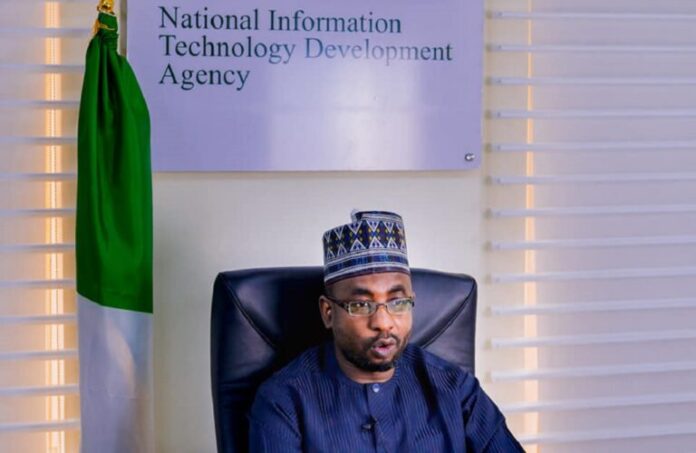Telcos Must Innovate To Remain In Business, Says DG NITDA
TECH DIGEST – The Director General of National Information and Technology Development Agency, (NITDA), Mr. Kashifu Abdullahi, has advised players in the telecommunication industry, especially the mobile network operators (MNOs) to innovate around trending technologies.
He warned that telecommunication companies stand the chance to loss their businesses to big technology firms, if they fail align themselves with the growing global trends.
Abdullahi made the remark on Thursday while addressing stakeholders that attended the Association of Telecommunications Companies of Nigeria (ATCON) “Virtual Structured Engagement With Key Stakeholders in The Nigerian Telecoms & ICT Sector on The New National Broadband Plan 2020-2025’,
He reiterated that the industry player must act urgently to salvage their business.
He said: “I would like to remind you about two powerful forces determined to disrupt your market. Elon Musk and Amazon are battling to put satellite Internet in your backyard. They are making internet-from-space race more interesting.”
According to the NITDA boss, other contenders are OneWeb and longtime operator Telesa that ATCON must get ready to tackle saying that “they are seriously working on making fast, reliable internet service from any place on earth with a clear view of the sky no more miraculous than a cell signal from your tower.”
“They are seriously working on making fast, reliable internet service from any place on earth with a clear view of the sky no more miraculous than a cell signal from your tower,” he reminded the stakeholders.
Abdullahi said that NITDA is putting efforts to stimulate local demands that will further improve broadband penetration in Nigeria.
“We are implementing various initiatives aimed at facilitating the achievement of the target of 70% broadband penetration by 2025,
He listed some of these initiatives to include:
Encouraging free domain registration for public institutions and SMEs through Nigerian Internet Registration Association (NIRA);
Facilitating Digital Literacy Training and Awareness, Digital content creation and indigenous language translation;
Effective digitization of Government services (e-Government) as well as other e-services;
Deployment of IT intervention projects that facilitate Digital Literacy and Skills development;
Development of Nigeria Government Enterprise Architecture (NGEA) and Nigerian e-Govt Interoperability framework (Ne-GIF);
Funding capacity building & Innovation initiatives to facilitate digital jobs creation;
Establishment of National Center for Artificial Intelligence and Robotics (NCAIR);
Establishment of National Digital Innovation and Entrepreneurship Center (NDIEC) among others.
The NITDA boss urged ATCON and other critical stakeholders to leverage on the event to ensure and guarantee that the new Nigerian National Broadband Plan 2020-2025 is adequately positioned to deliver its ultimate purposes for the generality of Nigerians in a faster and strategic manner.
In his words, “The new broadband plan is aimed to deliver data download speeds across Nigeria, with a minimum of 25Mbps in urban areas, and 10Mbps in rural areas, with effective coverage available to at least 90% of the population and penetration rate of 70% by 2025, at a price not more than N390 per 1GB of data (2% of median income or 1% of minimum wage).
“Today, Broadband access is no longer a luxury, but a necessity for economic and social development. In terms of economic development, it offers unprecedented opportunities for economic growth by providing access to information, connecting people to business, and opening new markets. Broadband penetration is transforming the conventional economy and enabling innovation economy. In terms of human development, it impacts almost every aspect of life from education to health, it supports enterprise and entrepreneurship, and unlocks the digital economy which reduces extreme poverty and enhance social inclusion.
“A study by Deloitte concludes that providing internet access to developing countries could boost productivity worldwide by 25%, generate $2.2 trillion in GDP, create 140 million new jobs, and lift 160 million people out of poverty. Hence, this suggests the significance and impact of realizing the 70% Broadband penetration in Nigeria to contribute in attaining such feats”.
















